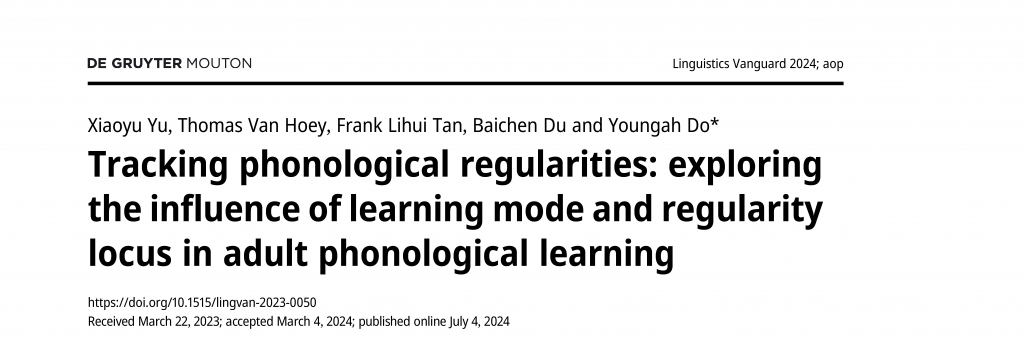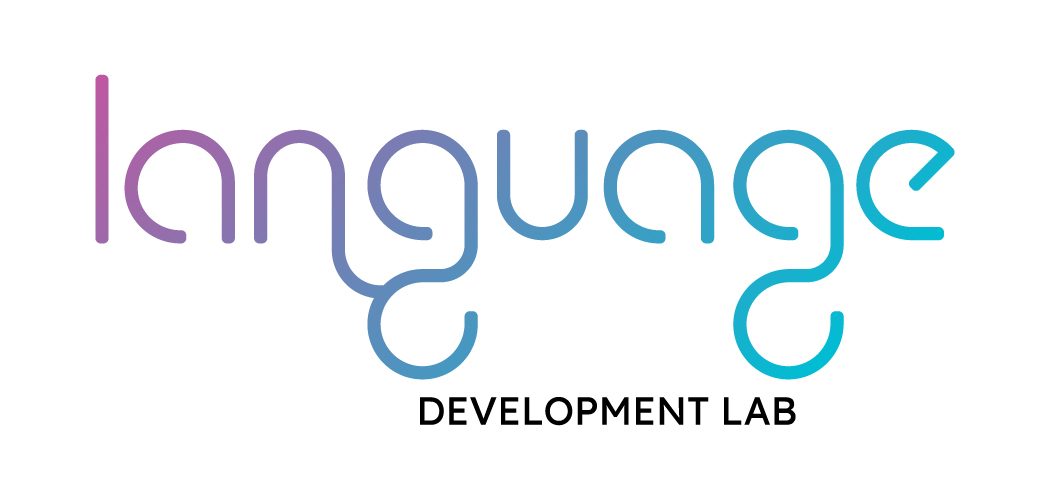We are pleased to announce the publication of a new research article titled “Tracking phonological regularities: exploring the influence of learning mode and regularity locus in adult phonological learning” in the journal Linguistics Vanguard. The paper, authored by Xiaoyu, Thomas, Frank, Albert, and Youngah, investigates the ways adults learn phonological patterns in language.

The study focused on the concept of regularity tracking, where learners subconsciously identify and utilize consistent patterns within a language system. The researchers examined how two factors – the learner’s approach (goal-oriented vs. exploratory) and the type of regularity (phonotactics vs. alternation) – influence this process.
Participants were tasked with acquiring vowel harmony rules for forming plurals in an experimental language. Across four conditions, researchers manipulated both the learning approach (whether participants were explicitly given a learning goal) and the type of regularity present in the language (phonotactics governed vowel selection vs. random vowel alternations).
The study’s key finding is that learners exhibited a stronger preference for identifying regularities when they had no explicit learning goal and when the language contained random alternations. This suggests that statistical learning mechanisms – which underlie our ability to unconsciously pick up on patterns – are influenced by the level of uncertainty in the learning environment and the nature of the regularity itself. Learners seem to be more sensitive to avoiding irregularities, particularly when the structure of the language itself is unpredictable. The findings overall suggest that learning strategies and the inherent structure of the language itself play a role in shaping how learners identify and utilize regularities within phonological patterns.
Yu, X., Van Hoey, T., Tan, F., Du, B. & Do, Y. (2024). Tracking phonological regularities: exploring the influence of learning mode and regularity locus in adult phonological learning. Linguistics Vanguard. open_in_newDOI file_download PDF

